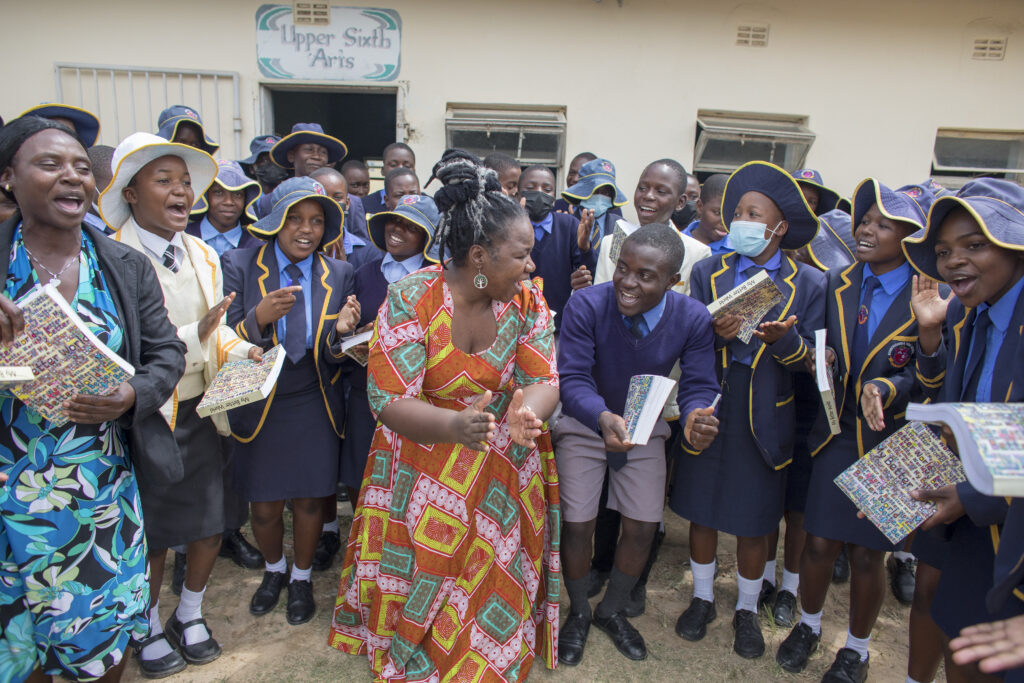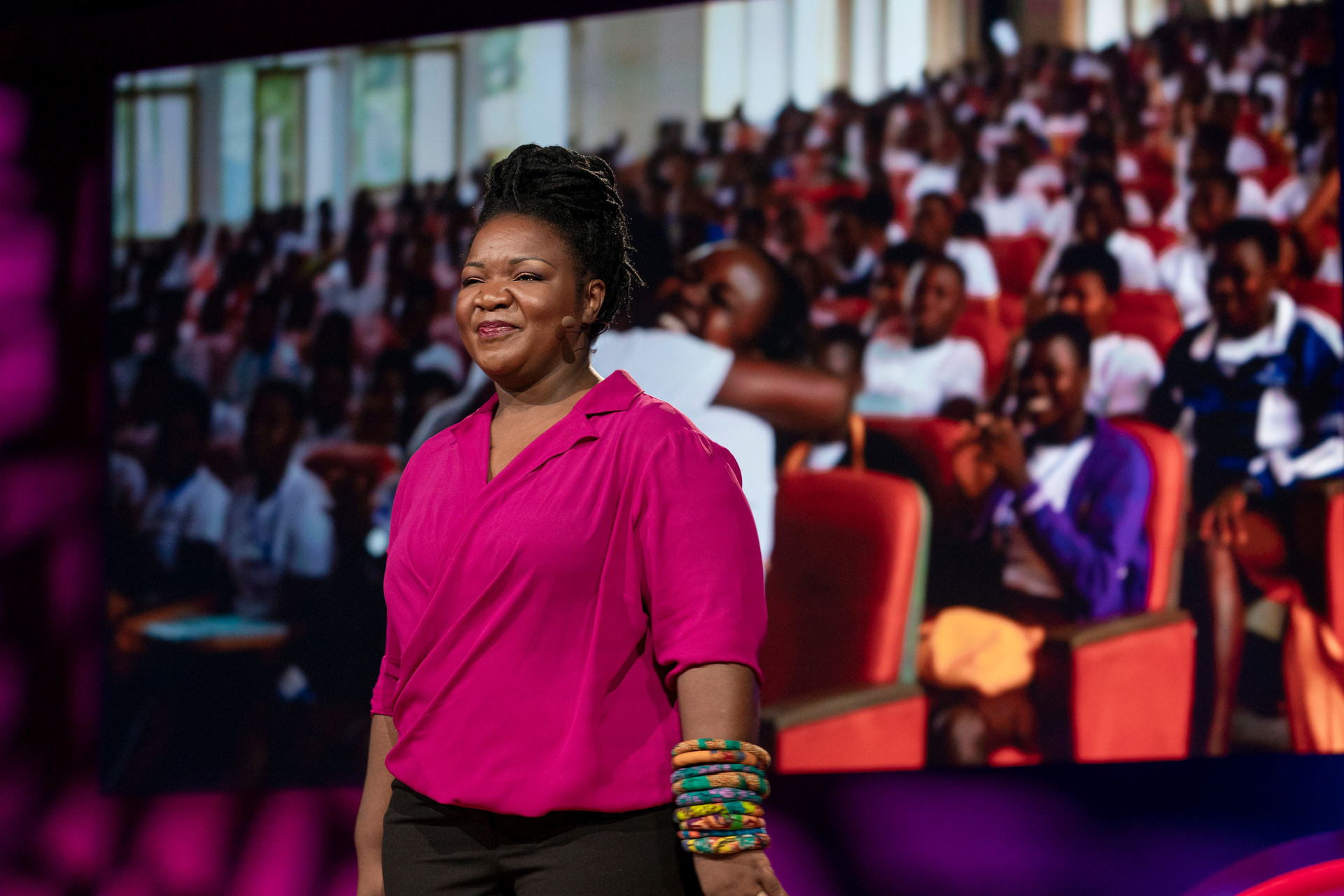Angeline (Angie) Murimirwa is a champion of girls’ education on the African continent—a cause the recently-honored CEO is deeply passionate about, having once been a girl almost “left behind”.
“I am here in New York, Time100 list,” Angie Murimirwa says in a sit-down interview on Zoom with FORBES AFRICA. “But I tell you, I still feel like that 10-year-old girl who got this unprecedented, unanticipated, if there’s a word like that, opportunity to do something with my life.”
In April, Time magazine released its annual list, recognizing the 100 most influential people in the world. Among them was Zimbabwean-born Murimirwa, CEO of the Campaign for Female Education (CAMFED).
However, in the 90s, like many other learners on the continent, Murimirwa had to strive for her education. Despite being a star pupil in primary school, she vividly remembers the desperation and poverty that blighted her childhood. She remembers the “indignity” of arriving at school barefoot, wearing a torn dress, and offering to do chores for her teacher in return for a pencil.
At home, she recalls how she often found her mother weeping over the reality that Murimirwa might be denied an education. After all, her family could not afford it.
Loading...
“Everything that I am today is born out of experiences and the journey that I have traveled… Close to 10 years old, I almost lost my grip on education, and at that very time, CAMFED was just being introduced in my community. They selected me for support, [which] makes me appreciate the value of the opportunity, and particularly for children from what I call ‘back of beyond’.
“The village is very remote, so to have gotten that chance for me changed everything.”
CAMFED, an international non-governmental, non-profit organization that operates in Zimbabwe, Zambia, Ghana, Tanzania, and Malawi, was founded with a mission to eradicate poverty in Africa through the education of girls and the empowerment of young women.
Now, years later, after being selected by CAMFED, Murimirwa is the head of the organization. What fueled her success is remembering how she would watch her peers miss class because they couldn’t afford menstrual products, or drop out because their families couldn’t afford to eat and they had to work.
It was then she saw how powerful and important education was but, more importantly, how access to it needed to be prioritized.
According to a United Nations estimate, about one in 10 girls in sub-Saharan Africa stay out of school during their menstrual cycle, accounting for up to 20% of the school year.

Murimirwa says that, as an organization, they work with some of the most marginalized girls in the countries where they operate, and only 5% of these girls complete high school.
“[When] you look into the educational statistics right now, you’d see that a lot of people talk about improved access, improved equity. Some people are overlooking completion,” she says.
“Let’s look at how many of the girls that are getting into school from these marginalized families get to complete high school. We’re losing girls at every single stage. If you ask me why, I would say that there are multiple reasons that this is happening; we need to recognize that girls’ education, I would say, is the closest thing to a silver bullet.”
She adds, “we must get it right. It’s not just about getting a couple of girls through school and providing scholarships and all of that. It’s about working with the entire ecosystem around the girl”.
Murimirwa explains that the ecosystem is about ensuring that girls are being supported by their families as well.
To date, CAMFED has helped support 7.8 million children to go to school in countries like Ghana, Tanzania, Malawi, Zambia, and Zimbabwe; this includes 2.4 million girls in secondary school.
The nominations for the Time100 list come from alumni who have already been on the list, and Murimirwa’s nomination came from Malala Yousafzai, a Nobel Peace Prize laureate and founder of the Malala Fund, who was a listee in 2013.
In the Time piece Yousafzai wrote on Murimirwa, she said: “Educating girls is the foundation of healthy and strong societies. But in many places, the barriers to attending school are mounting, depriving girls of the resources to choose their futures. Few people are fighting to solve this crisis as tenaciously and effectively as Angeline—one reason among many that her work won her the prestigious 2024 Africa Education Medal”.
“Angie Murimirwa is an inspiration to women and girls everywhere,” former First Lady of the United States, Michelle Obama, said in a statement.
“Her grassroots approach to supporting vulnerable girls through CAMFED has transformed lives across Africa. Every girl, everywhere, deserves the right to an education and to be able to choose who—and when—to marry. With Angie leading the way, we get closer and closer to reaching that brighter future for our girls.”
When asked what this means to her, Murimirwa says that although she is still shocked and admittedly jokes that she thought the email was a scam at first, it means that the work that she and the organization are doing shows they are in it for “the long haul.”
“We’re not performative about this. I know way too well the depth of despair of being excluded, of not being seen, or feeling like you don’t belong, and just the exhilaration of [then] being seen, of being acknowledged, of being given an opportunity,” she says.
“[My advice to young people is] you are here because you have a right to be here. You are here for a reason and a purpose and focus on what is the value you want to bring to the world. There will be a lot of distractions, there will be a lot of disruptions, and there will be a lot of discouragements and despair. But lean on your strengths and show up fully, unapologetically, and unashamedly. And don’t go on it alone, look to your peers, create champions, and all of that. But remember, you matter. Your story matters, your journey matters.”
Loading...
